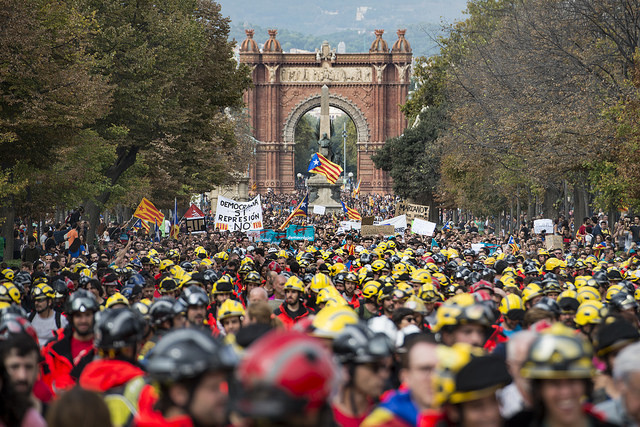
Writing for n+1, Eli S. Evans examines the recent independence referendum in Catalonia, where 90 percent reportedly voted in favor, despite arrests and violence by Spanish national police. Evans suggests that the referendum—which is merely symbolic insofar as there is no existing legal mechanism for a Spanish region to declare independence—illustrates that the nation-state may no longer be an adequate way to organize social and economic life. Here’s an excerpt from the piece:
But perhaps the question of legitimacy is the wrong one to ask. After all, our traditional standards for self-determination—the UN charter, international jurisprudence—merely reflect the centrality of territorial integrity in the post–World War II model. Transnational military alliances and international security networks forged to protect that territorial integrity have created the semi-porous borders necessary for the globalization of capital—a process that in turn nullifies the us-or-them logic on the basis of which the ruling class of one nation might decide to supplant that of another via invasion. The ongoing fiasco in Catalonia is just another painful reminder that, chased down by the dogs of economic inequity and environmental catastrophe, this model—this strategy for managing the world—has reached its expiration date. In assessing whether a semi-autonomous region with a unique national identity like Catalonia can legitimately stake a claim to an extralegal right to self-determination, we would be well served to consider whether, in view of our as yet unwritten collective future, we should look toward more flexible and situated notions of sovereignty and statehood. These visions might offer not only a happier alternative, but even a necessary antidote, to the retreat into zero-sum ethnonationalism our own President has proposed.
Image via n+1.